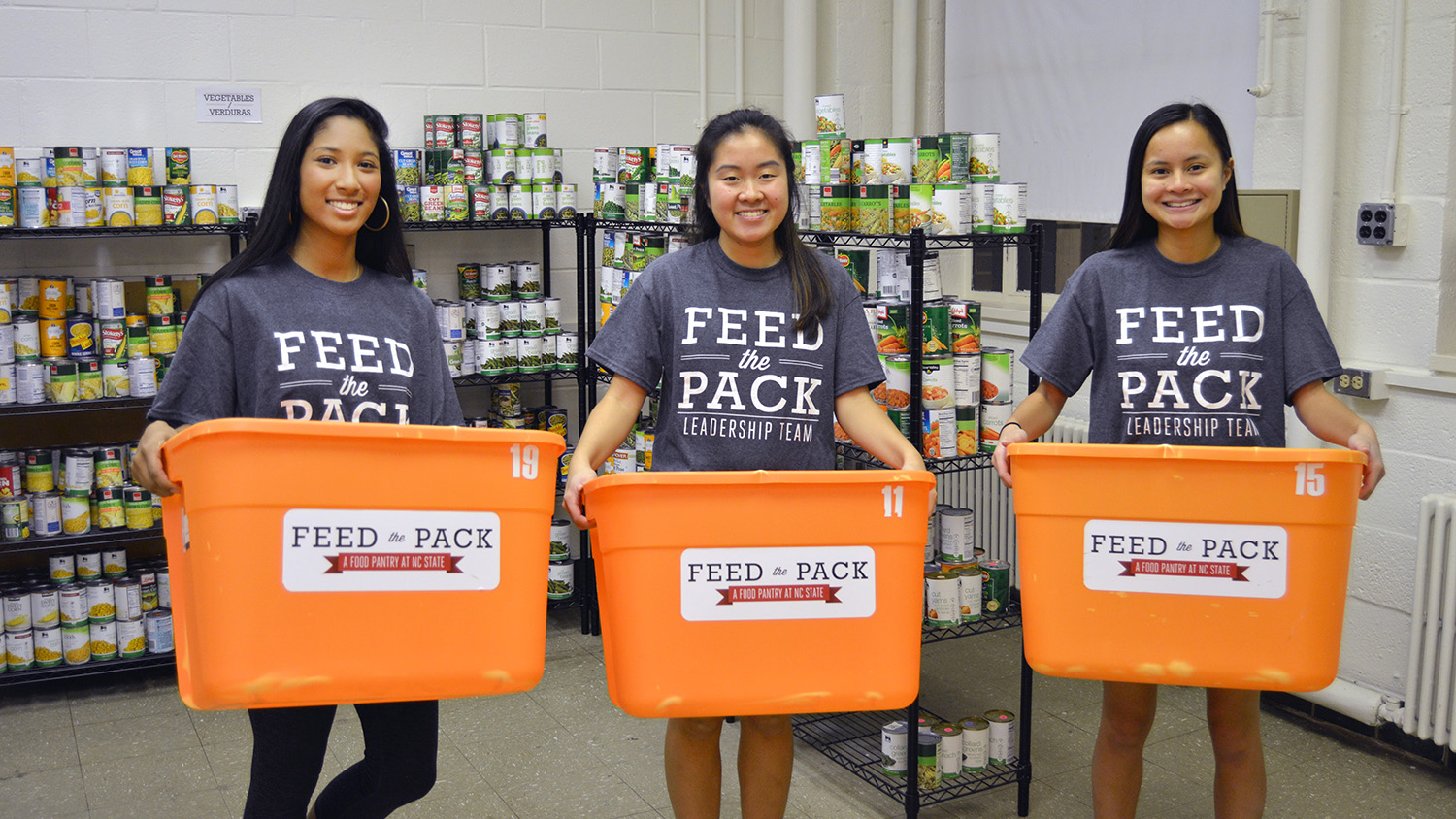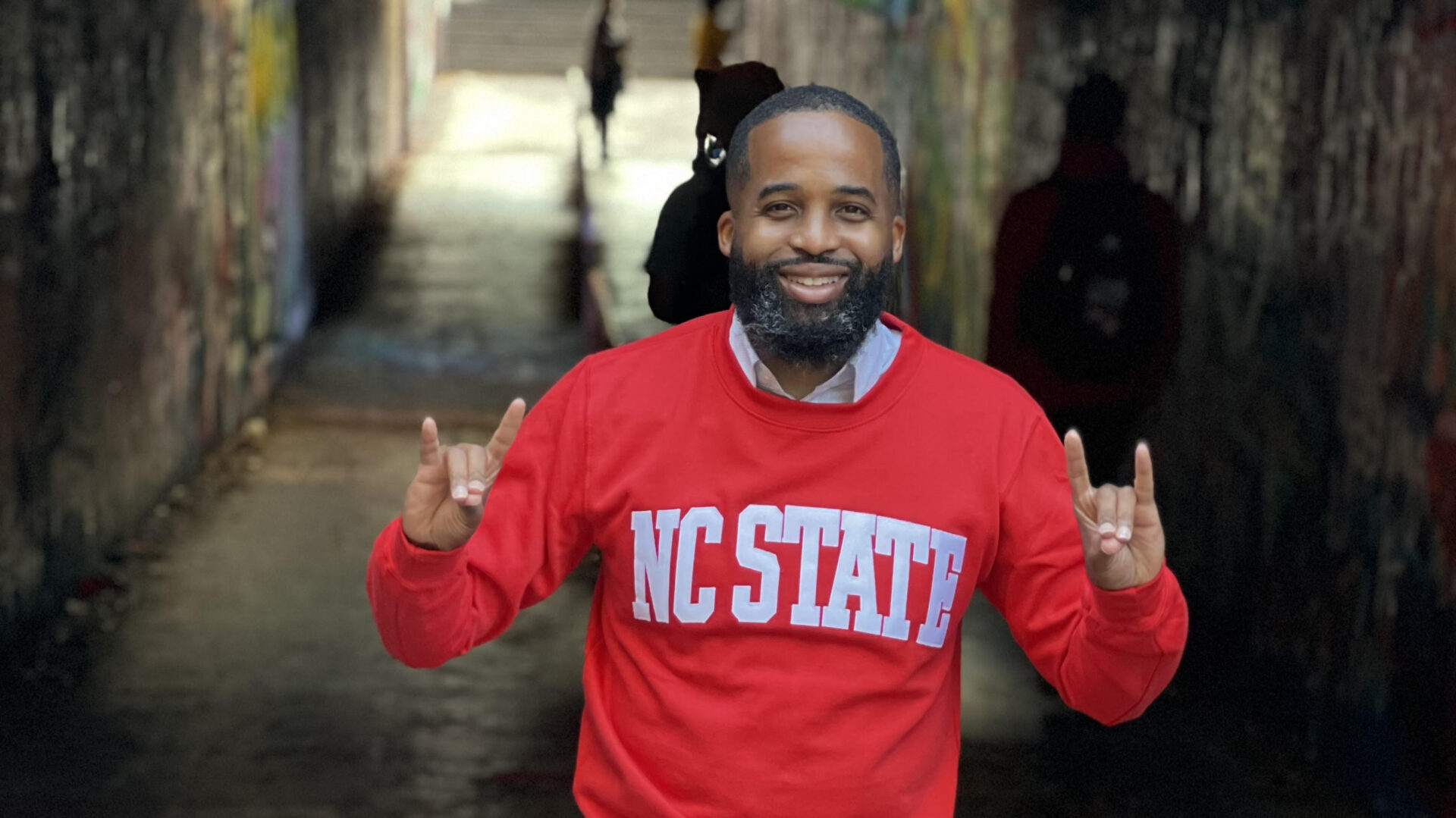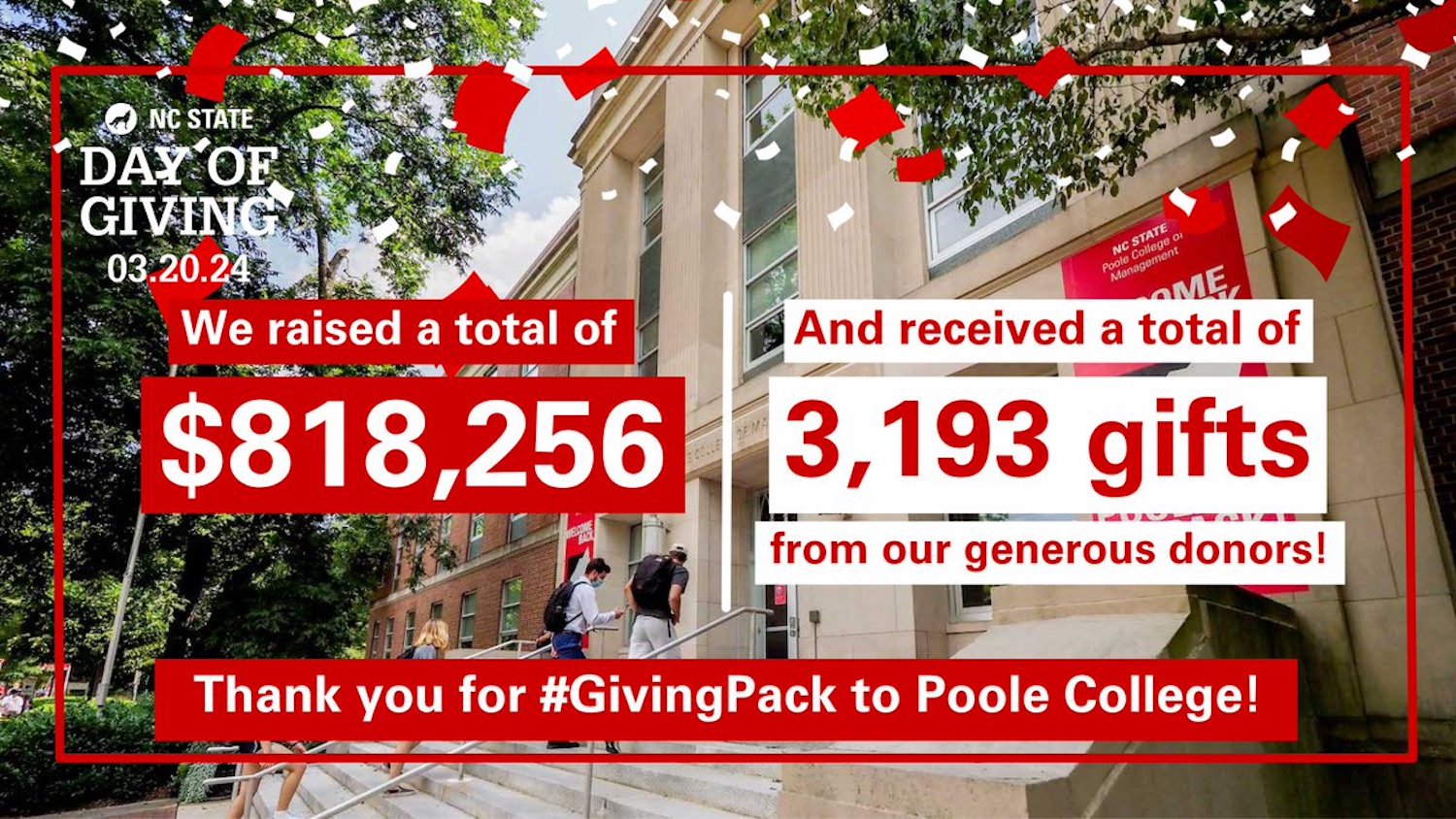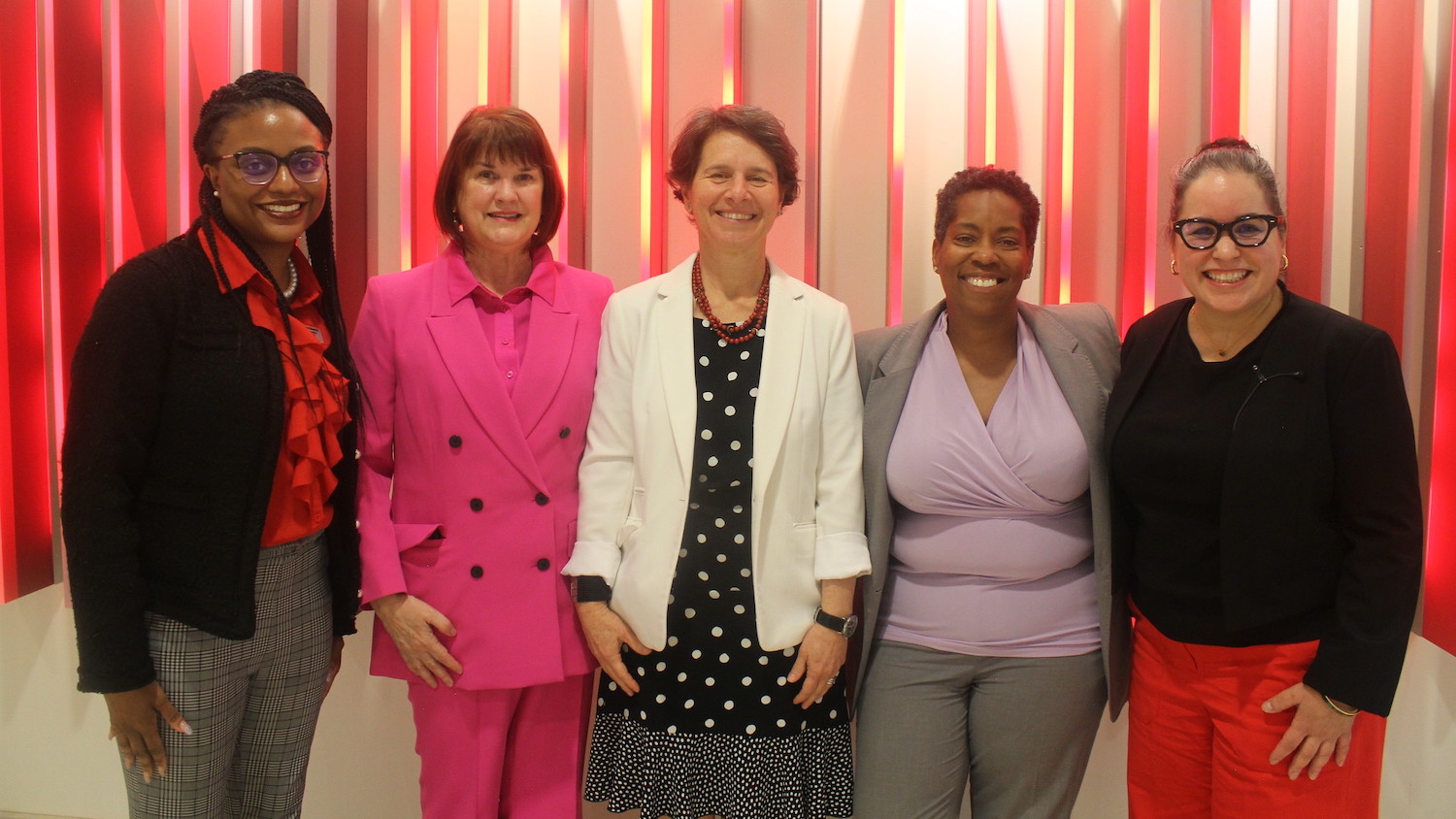Feed the Pack

When NC State University opened the Feed the Pack Community Food Pantry to students and staff in 2012, the pantry received about 20 visits. In 2013, that number grew to 487 – and it continued to grow, hitting 1,100 visits in 2016.
Already in 2017, more than 800 patrons have visited, about 50 percent students and 50 percent staff. As the pantry continues to grow and serve more people, both continued donations of nonperishable goods, as well as financial contributions, are needed.
“I think the numbers suggest an increase in awareness and, absolutely, increases in the cost of attendance and living,” said Melissa Green, director of the Center for Student Leadership, Ethics and Public Service, the office within the Division of Academic and Student Affairs that oversees the food pantry. “Of course, this is anecdotal, but I think that the more costs impacting students increase, the greater the struggle to meet some of the most basic needs as a student.”
In five years, the Feed the Pack Community Food Pantry has come to address food insecurity for both students and employees on campus. Originally open just a few hours per week, the pantry now keeps regular hours each weekday and operates throughout the summer months as well.
North Carolina’s statistics on hunger explain a little bit about why. According to the North Carolina Association of Feeding America Food Banks, one in four North Carolina children under age 18 face food insecurity on a regular basis – one of the highest percentages in the United States.
“People forget that when that population enters into college, that need doesn’t go away,” Green said. “In fact, we see those needs increasing.”
Oftentimes, those college students work multiple part-time jobs, sending money back to help their family at home, and then they must make choices between buying books, paying rent and buying food, she said.
Sarah Wright, academic coach with Student Support Services, works with low-income, first-generation students on campus, and said they’ve come to view the pantry as an essential part of their lives.
“It’s become a necessity to maintain having adequate meals and adequate nutrition,” Wright said. “In the beginning, we were just focusing on awareness that the pantry existed, but now, for my students, it’s not just an awareness, but an acceptance that it’s one of the ways that they ensure they have access to food.”
College students sometimes cut expenses by living on low-cost food like instant noodles, Green said, but part of the goal of the Feed the Pack pantry is to recognize that healthy, balanced meals are important.
“We tend to normalize that idea [of simply eating cheaply], rather than recognize that it is an issue and a challenge for our students,” she said.
From the start, Feed the Pack has been a student-led initiative. A leadership team of six to eight students coordinate everything from stocking the pantry, to marketing initiatives, to managing the more than 300 volunteers who have signed on to help.
Thu Le, a senior in the College of Engineering, currently heads up that student group as executive director.
Le has a history helping with food insecurity – volunteering at local soup kitchens during high school – but said she has been surprised by the level of need on campus.
“There’s a misconception that if you can afford college, you can afford to eat.”
Le said the volunteer group works to educate the community about food insecurity, too.
“When we educate about food insecurity, we try to define food insecurity,” she said. “It’s not that you have no money for food, but if you can only afford unhealthy, not completely nourishing food, that’s considered food insecurity.”
Le and the rest of the leadership team also work to coordinate donations that keep the pantry stocked. The pantry received 340 pounds of donated nonperishable items in 2012, with that number almost quadrupling to 12,204 pounds in 2016. Food donations come from a combination of student organizations and departments on campus, churches in the area, food drives at grocery stores and individual donations, Le said.
Donations can include not only nonperishable food item, but also hygiene products and cleaning supplies, Le said. A list of most needed items is available on the pantry website.
Financial contributions also will go toward improving the pantry, now located in Broughton Hall, Le said, and ensuring that it’s clean, organized and equipped to serve the NC State population. For example, volunteers hope to purchase an industrial scale to better weigh food for tracking purposes. They’re also looking to expand marketing efforts to ensure both students and staff campuswide are aware that this resource exists.
“My goal this semester as executive director is to be very mission-oriented,” Le said. “Our mission is to fulfill the very basic needs of the NC State community, and to create an environment that is a safe place to be – we’re welcoming, we’re warm and we’re here to support you.”
For more information or to make a food donation, please contact 919.515.9248 or csleps-office@ncsu.edu.
- Categories:


